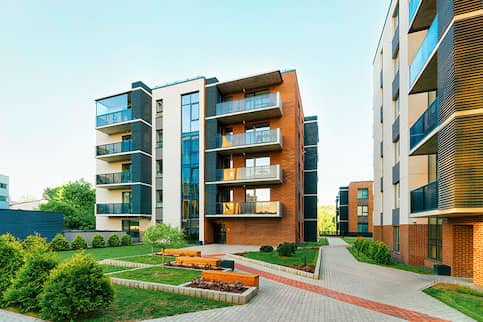Leading Myths Regarding HOA Condo Life Debunked
The Role of an HOA in Developing and Enforcing Community Standards for Locals
The duty of a Homeowners Association (HOA) in developing and imposing neighborhood guidelines is essential to keeping a organized and cohesive property setting - hoa condo. By formulating clear regulations that govern elements such as residential or commercial property maintenance and area conduct, the HOA not only sets criteria for citizens but likewise promotes a feeling of belonging and accountability. The implementation of these standards can provide different obstacles, elevating inquiries concerning justness, communication, and community engagement. As we discover these complexities, it becomes evident that the impact of an HOA extends far past plain policy enforcement.
Recognizing Property Owners Associations
Homeowners organizations (HOAs) function as governing bodies for household neighborhoods, playing a critical function in maintaining home values and cultivating a sense of area. Normally developed by programmers, HOAs are composed of property owners within a designated area that elect a board to look after the organization's activities. The main features of an HOA consist of imposing community policies, taking care of usual areas, and organizing area events.
HOAs run under a set of regulating documents, including commitments, limitations, and conditions (CC&R s), which detail the rights and responsibilities of house owners. These laws intend to ensure that buildings are maintained to a particular standard, therefore securing the aesthetic allure and overall value of the neighborhood. Furthermore, HOAs often collect fees from property owners to fund upkeep, landscape design, and various other area solutions.
The presence of an HOA can dramatically influence the living experience within a neighborhood (hoa condo). While some locals appreciate the structured atmosphere and features supplied, others might locate certain regulations restrictive. Balancing the interests of all homeowners is important for an HOA to function efficiently, ensuring that it serves its desired function of improving community living while respecting private home owner rights
Creating Area Standards

To start, an HOA ought to conduct surveys or hold meetings that allow locals to voice their pointers and concerns. This participatory process cultivates a feeling of possession and boosts conformity. Next, the HOA board should assess the responses to determine usual motifs and top priorities that call for official incorporation in the standards.
It is likewise necessary to make sure that the guidelines are clear, concise, and conveniently comprehended. Uncertainties can result in misunderstandings and conflicts, undermining the purpose of the standards. The guidelines must be extensive, covering various elements of neighborhood living, including property upkeep, sound levels, and usage of typical locations.
Enforcement of Policies
Efficient enforcement of neighborhood regulations is critical for preserving order and making certain that all citizens adhere to the developed guidelines. An HOA has to execute an organized method to apply these policies, which usually includes a mix of monitoring, interaction, and penalties for non-compliance.
First, normal inspections and neighborhood patrols can aid determine offenses, ensuring that policies are consistently applied throughout the area. This proactive tracking permits the HOA to address problems prior to they rise, fostering a feeling of liability among locals.
2nd, clear interaction is essential. Locals ought to be notified of the regulations and the procedures for reporting violations. An open line you can try this out of communication motivates homeowners to voice concerns and seek clarification on standards, which can boost compliance.

Finally, when infractions happen, the HOA needs to implement repercussions as outlined in the governing files. This may consist of advising letters, penalties, or, in serious situations, lawsuit. It is essential that penalties are used relatively and constantly to preserve count on within the community. By effectively enforcing rules, an HOA can cultivate an unified living atmosphere that reflects the cumulative values of its locals.
Benefits of HOA Rules
Many benefits develop from the execution of HOA policies, which offer to improve the lifestyle within a community. One main advantage is the maintenance of home worths. By implementing standards for appearances and upkeep, HOAs make sure that homes and common locations stay eye-catching, promoting a preferable living environment that can bring about increased residential or commercial property worths in time.
In addition, HOA policies advertise uniformity and uniformity within the neighborhood. This comprehensibility in design and maintenance helps to produce a feeling of belonging amongst locals, adding to area pride and a positive ambience. Developed standards promote conflict resolution among neighbors by offering clear expectations and protocols for habits, consequently lessening disagreements.
Another significant benefit is the provision of shared facilities and solutions. Lots of HOAs manage community facilities such as clubs, parks, and pools, which enhance recreational opportunities for citizens. These services not just enhance the high quality of life however likewise motivate social interaction.
Ultimately, the regulations set forth by an HOA grow an efficient, unified neighborhood, making sure that locals delight in a high requirement of living while fostering an encouraging setting for all house owners.
Typical Challenges Faced by HOAs
Amidst the advantages that house owners associations (HOAs) can provide, they additionally come across a variety of obstacles that can prevent their effectiveness. One substantial problem is the absence of resident engagement. Lots of house owners may not get involved in conferences or community tasks, causing a disconnect in between the HOA board and locals. This disengagement can cause misconceptions about area guidelines and an absence of support for enforcement initiatives.
Disputes can occur when citizens really feel that enforcement is irregular or prejudiced, potentially leading to conflicts within the community. Furthermore, HOAs commonly face financial restrictions, which can limit their capability to preserve typical locations or fund neighborhood jobs.
Additionally, browsing legal complexities can be daunting for HOAs. They must ensure conformity with state regulations while managing their own regulating files, which can be a source of complication. Last but not least, transforming demographics and progressing community needs call for HOAs to adjust their guidelines, frequently meeting resistance from long-lasting citizens who are accustomed to traditional standards. Resolving these difficulties is essential for cultivating a unified and thriving area.
Final Thought

By developing clear regulations that govern elements such as residential or commercial property maintenance and community conduct, the HOA not only sets requirements for homeowners but also promotes a feeling of belonging and liability.Homeowners organizations (HOAs) serve as governing bodies for domestic neighborhoods, playing an essential function in preserving building worths and fostering a sense of over here community. Numerous house owners might not take part in conferences or neighborhood tasks, leading to a separate in between the HOA board and residents. Developing and changing demographics community needs require HOAs to adapt their guidelines, often meeting resistance from long-standing residents who are accustomed to traditional norms. Via the growth of clear guidelines and constant enforcement, HOAs promote home maintenance, community satisfaction, and trust amongst citizens.